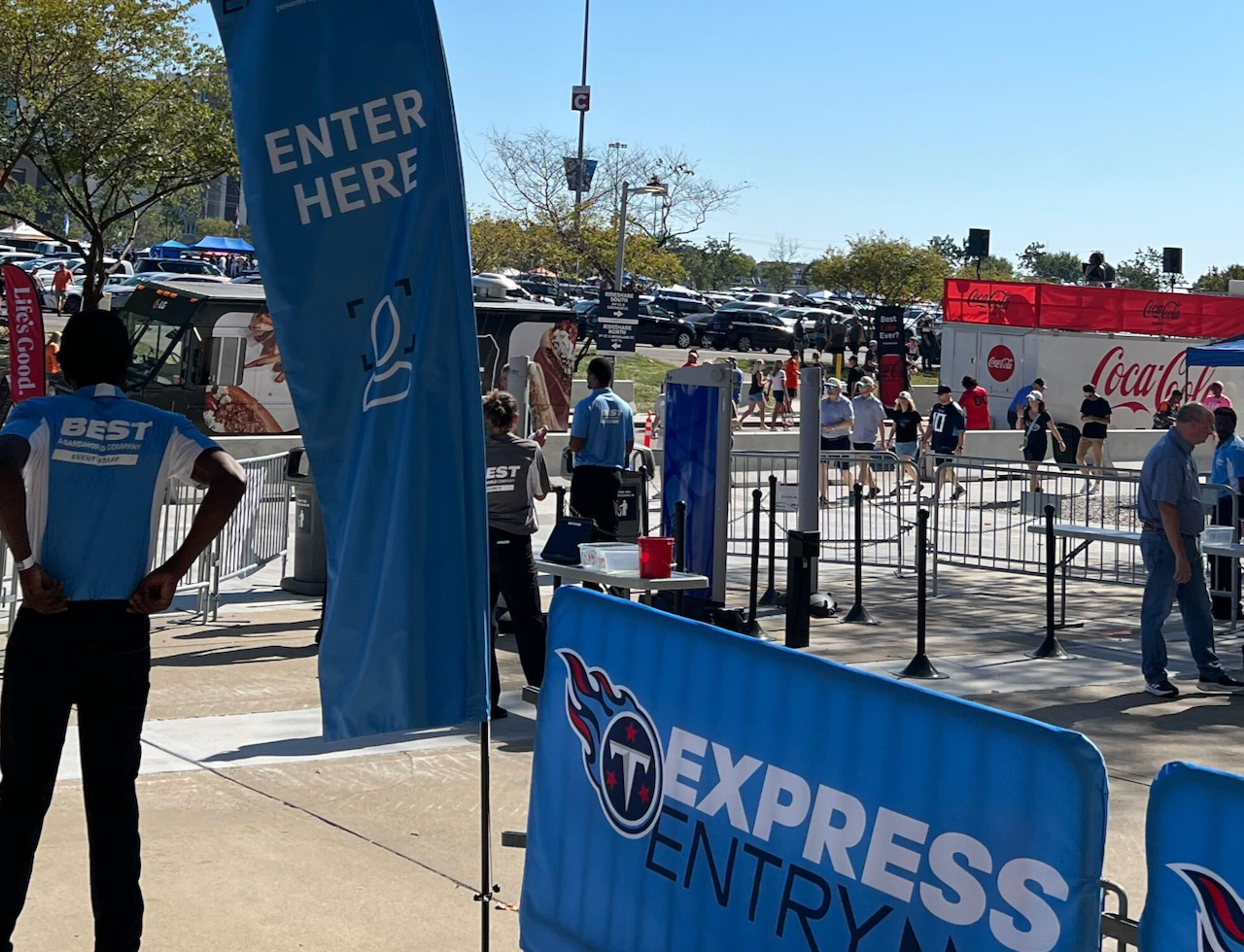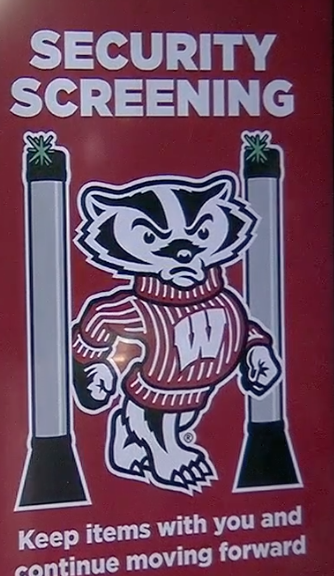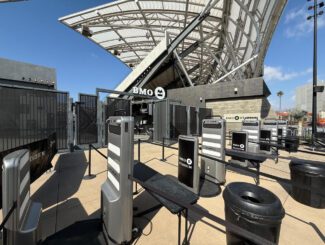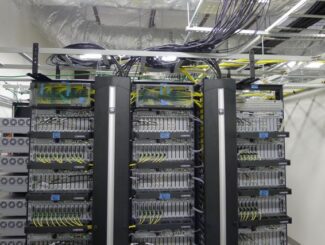
Part 3: Who are the providers?
Since many of the providers in the walk-through security screening marketplace are privately held it is hard to get exact statistics on the number of systems deployed, or the exact costs of systems to venues. However, because of some media reports of contract proposals to public schools and other venues who must reveal costs to the public, as well as from internal industry sources, we do have a fairly good idea of who is leading in the market, and what the general costs of systems are.
As a publicly held company, Evolv Technology (NASDAQ: EVLV) does provide some numbers to its recent public success. With $20.2 million in reported revenues for the fiscal quarter ending on Sept. 30, 2023, en route to a fiscal year with predicted revenues well north of $70 million, Evolv is clearly providing something that customers see value in. In the stadium-specific market, Evolv claims to be deployed in more than 40 professional venues, including 11 NFL stadiums.

Two other companies in the stadium security scanning marketplace, CEIA USA and Garrett, both privately held, also have numerous stadium deployments of both new and legacy metal-detector products. But since neither CEIA nor Garrett will provide any exact counts of their stadium customer lists, it’s hard to say if either one is closer to Evolv in new sales, or perhaps even ahead. But with its high-profile recent NFL stadium wins, Evolv certainly has the top mind share in the advanced walk-through systems market, if not the numerical lead.
CEIA USA, which is the U.S. subsidiary of Italian parent CEIA (a security products behemoth), has previously sold many of its standard metal detectors to sports venues, with many still in use today. Currently, CEIA also sells a true walk-through scanning system it calls Opengate, which is being used in a number of sports venues including NFL stadiums Empower Field at Mile High in Denver and GEHA Field at Arrowhead in Kansas City, Major League Baseball stadiums Chase Field in Phoenix and Nationals Park in Washington, D.C., and large college football stadiums including Ohio Stadium at The Ohio State University and Camp Randall Stadium at the University of Wisconsin.

Garrett, which has been in business for 60 years, has provided metal detectors to many of the past Olympics and other major international sporting events, as well as “dozens” of major U.S. stadiums, according to the company. Recently, Garrett introduced a version of its standard-design metal detector software which is designed to allow for faster flow by allowing fans to go through scanners without having to remove things like keys and cell phones from their pockets. According to Garrett the company currently counts the Dallas Cowboys, the Tampa Bay Buccanneers and the Indianapolis Colts among its customers.
One other startup in the marketplace, a company from Toronto, Canada called Xtract One, has fewer sales than Evolv but it also has some heavyweight partners — including a major investment this past year from Madison Square Garden that saw MSG acquire nearly 30 percent of the company.
Xtract One’s Smart Gateway product is currently being used in a small number of professional and college venues, inlcuding the Moody Center in Austin, Texas, and Acrisure Arena in Palm Springs, Calif. Xtract One’s Smart Gateway product is also being used in a number of venues either owned or operated by stadium management firm Oak View Group, which has a public agreement with Xtract One.
In terms of costs, our reporting has found that Evolv’s systems (which are typically sold under a 4-year lease plan) are the most expensive up-front, followed by Xtract One, which uses a similar leasing plan. The systems from CEIA and Garrett, which are sold directly to stadiums, are generally cheaper in price.
A report from a public high school district that evaluated and got bids from all four vendors provided the following costs: For what the district wanted, the Evolv system would cost the district approximately $120,000 over three years, while the Xtract One system would cost about $72,000 over the same period. On the metal detector systems side, the district found that the CEIA Opengate system would have an initial cost of between $20,000 and $30,000, while a system from Garrett would have an initial cost of approximately $7,000. Other reporting confirmed these totals as being representative of the approximate cost differences between the systems.
Some other walk-through startups that we are tracking due to the potential of their technology have not yet entered into any public deals with stadiums, but both Liberty Defense with its Hexwave systems and Xonar with its Xonar TruePort are reporting that they are in active trials with venues.
For individual profiles of the leading walk-through security scanning devices, follow these links:
This post is part of our Market Report on Security Scanners. Click here to return to the start of the report.









